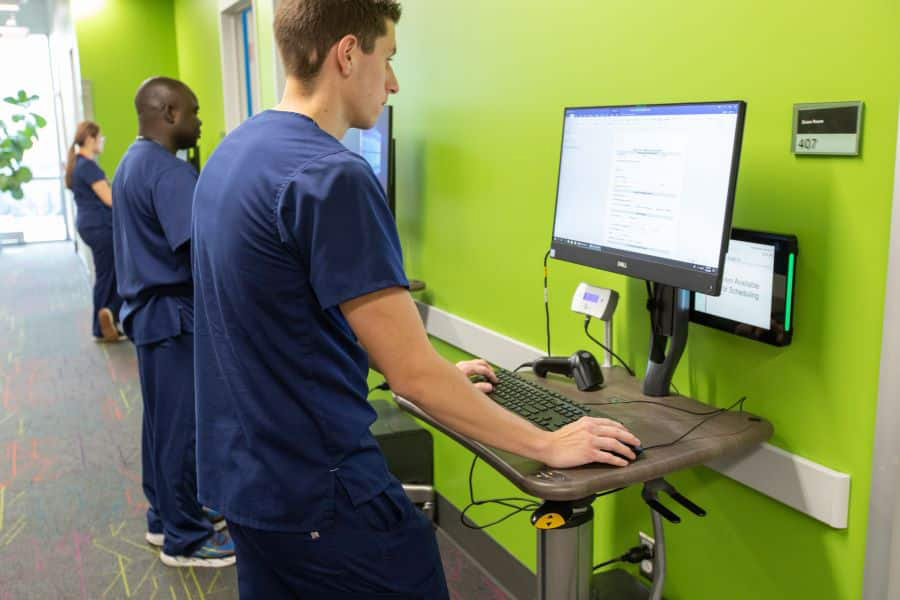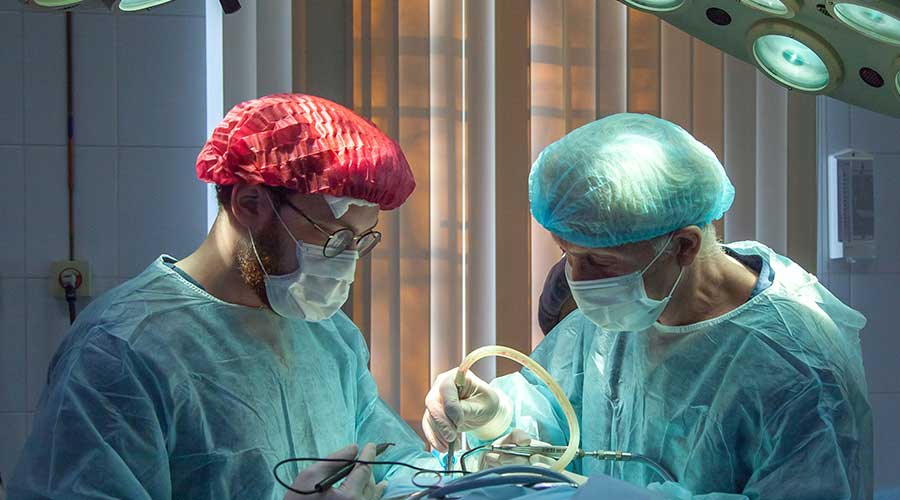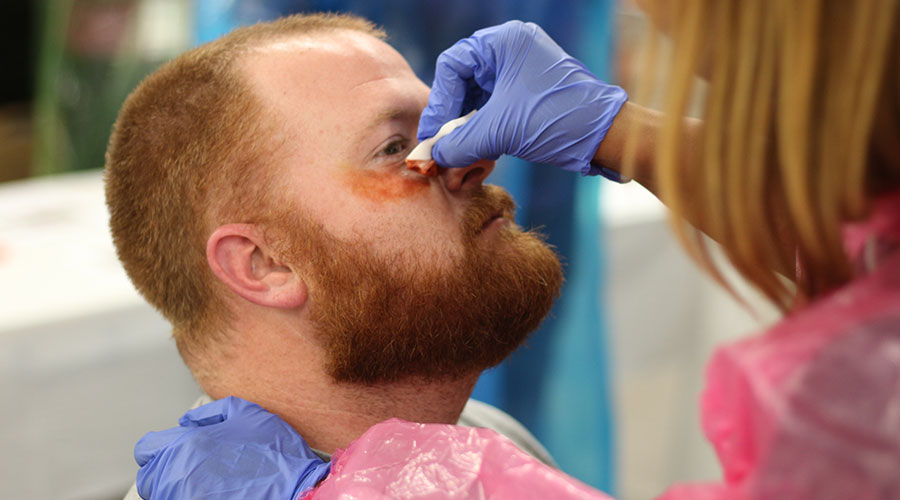Learn about different tools and resources available to help you start a career in medical simulation
Medical simulation is rising in popularity as an engaging and effective way to deliver education to medical students in a safe, structured environment. And with new sim labs popping up in training hospitals and universities in Miami, FL, and across the U.S., the need for qualified simulation technicians is rising as well.
Simulation education can take the form of many pathways, from certifications and trade schools to college-level degrees and courses. And it’s a field open and attractive to individuals with various areas of expertise — nurses, IT technicians, and AV experts could all find that becoming a sim tech is a fulfilling career path.
If you’re interested in pursuing a career as a simulation technician or similar role, we have some guidelines to help you create a simulation education pathway. Keep reading to get started!
on Wednesday, 29 December 2021.
Posted in Simulation Education
LEVEL 3 AUDIOVISUAL HOSTS SEVERAL TRAININGS, SIMULATION CONFERENCES AND WEBINARS FOR SIMULATION PROFESSIONALS WORLDWIDE
If you’re a new or current simulation technician, ongoing education is crucial to advance your career and operate a fully functioning healthcare simulation lab.
Level 3 Audiovisual is here to help. As a worldwide leader in simulation lab design, installation, integration and operation, we provide several educational opportunities to further your success. Our team helps sim techs in Washington, D.C. and across the globe gain the technical and educational skills they need in a competitive industry.
What can you expect to get from our simulation conferences, webinars or training sessions? Keep reading to find out.
on Sunday, 31 January 2021.
Posted in Simulation Conferences Washington D.C., Simulation Conferences
Good Patient Outcomes Depend on Effective Teamwork
The goal of every healthcare professional, from doctors and nurses to EMTs to pharmacists is the same: to provide positive outcomes for their patients. That goal, however, is not always easy to achieve. According to statistics reported by the National Institutes of Health (NIH), around 400,000 hospitalized patients in the United States experience some kind of preventable harm every year. Improved medical training through high-fidelity healthcare simulation can go a long way in better preparing healthcare providers and therefore reducing errors and improving outcomes. But improving providers’ individual skills and competencies is only part of the equation. Healthcare providers also need to learn how to work together and communicate effectively as part of a multidisciplinary team to improve overall medical care outcomes. Level 3 Audiovisual hosts quarterly skills camps, focused on teamwork training for healthcare students and professionals. Keep reading to learn more about the model that will be presented—and the benefits it could bring to your simulation center.
on Wednesday, 11 December 2019.
Posted in Medical Simulation Training
THIS CERTIFICATION CAN BE A CAREER BOOST FOR SIM TECHS
As a healthcare simulation professional, your focus is providing training opportunities for healthcare students and professionals that will ultimately help them improve patient outcomes, and that takes a lot of different types of equipment. There are healthcare technologies such as manikins and vital sign monitors. There are AV technologies such as displays, cameras, speakers, and microphones. And much of that technology must interface with a larger IT network. Managing all those technologies and requirements, however, can take a sim tech’s focus away from running successful trainings, especially if you are unfamiliar with some of the tools in your healthcare simulation center. For example, an EMT-turned-sim tech will be familiar with medical terminology and equipment, but might be completely lost when it comes to running the AV equipment that is a critical part of every healthcare simulation center. AV industry certifications such as the Certified Technology Specialist™ (CTS®) program can help sim techs round out their skill set and provide more comprehensive service to their healthcare simulation centers.
on Wednesday, 06 November 2019.
Posted in Medical Simulation Training, Simulation Training
SIMULATION SKILLS CAMP EMPHASIZES THE IMPORTANCE OF DEBRIEFING
The team of simulation experts at Level 3 Audiovisual come from different backgrounds but share a common goal: to provide the simulation industry with a standardized level of education and training. To achieve this goal, Level 3 hosts and sponsors various education and training events throughout the year. Level 3 Audiovisual recently concluded a skills camp event in Mineola, N.Y., which drew healthcare simulation professionals and educators from 60 simulation centers in the New York and New Jersey area. These New York Sim Chapter Skills Camps are designed to provide both networking and education for simulation professions in the area. The most recent event, held September 24, focused on advanced debriefing as a key part of the healthcare simulation process.
on Sunday, 20 October 2019.
For many careers and professions there is a clear path to get from where you are to where you want to be. If you want to be an engineer, you get an engineering degree. If you want to be a doctor, you go to medical school. But if you want to be a simulation technician or simulation operations specialist, the way forward is a little less clear. There is no standardized degree, certification, or educational path for simulation specialists, and people come to simulation from a variety of backgrounds including nursing, emergency response, IT, and administration.
on Tuesday, 20 August 2019.
Posted in Medical Simulation Training, Simulation Training
Simulation labs are a growing part of healthcare training and education programs, but simulation lab managers still face some challenges when it comes to hiring the right staff, raising the necessary funding, and purchasing the right equipment, among other things. In the final recap of Level 3 Audiovisual's recent webinar, “15 Challenges in Healthcare Simulation and How to Conquer Them,” The Director of Healthcare Simulation at Level 3 Audiovisual, offers some insight for simulation lab managers to resolve their most common obstacles and frustrations. If you missed the first two recaps that focus on challenges faced by sim techs themselves, you can find them here and here.
on Wednesday, 17 July 2019.
Posted in Healthcare Simulation, Medical Simulation
Just like cheesy special effects can ruin a superhero movie, unrealistic wounds and symptoms can ruin a healthcare simulation scenario. Healthcare simulation training is the gold standard for improving both clinical competence and patient outcomes, but it works best if the scenario seems real. Moulage—special effects makeup for simulation—enhances the realism of your simulation scenarios and provides visual cues for diagnosis and treatment. And, luckily, you don’t need a movie studio special effects department to create it. Keep reading for hacks and tips to create realistic moulage on a budget.
on Tuesday, 28 May 2019.
Posted in Medical Simulation Training, Simulation Training
 How to Build Your Own Simulation Education Pathway
How to Build Your Own Simulation Education Pathway 







